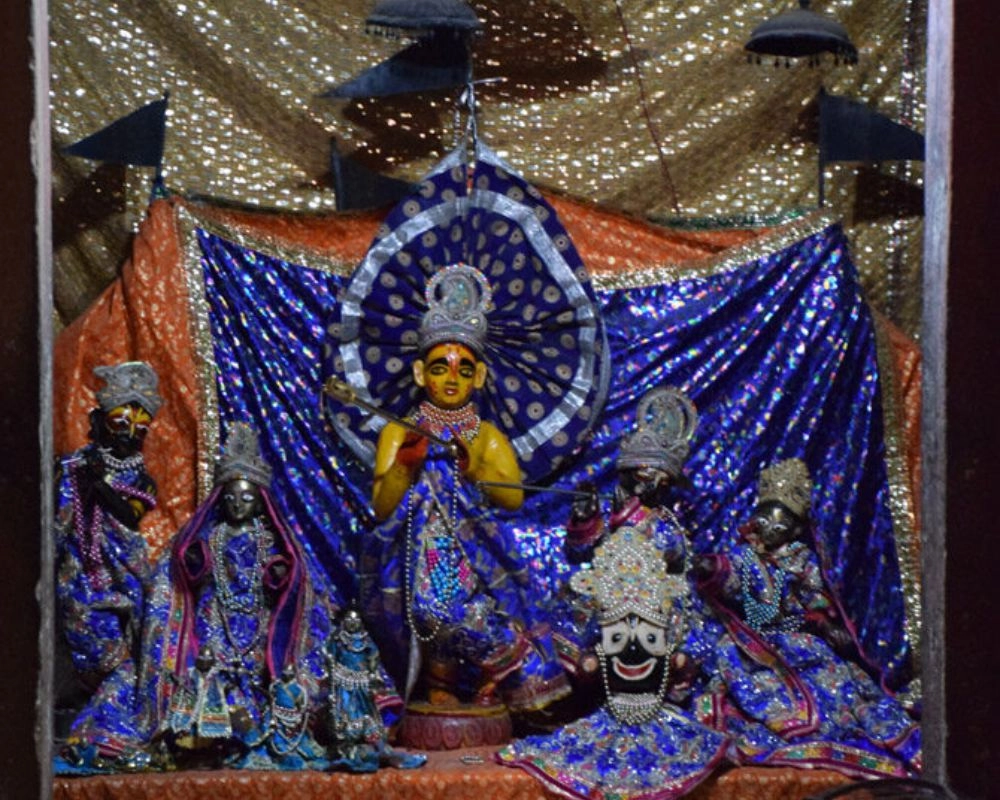Prem Mandir
Nestled in the sacred town of Vrindavan, Uttar Pradesh, Prem Mandir (Temple of Love) stands as a maj...

Nestled in the heart of Vrindavan, a town that vibrates with the eternal love of Radha and Krishna, the Gopinath Temple stands as a serene sanctuary of devotion, heritage, and divine energy. Steeped in the mystical traditions of Gaudiya Vaishnavism, this sacred temple is one of the oldest and most revered in Vrindavan, attracting pilgrims and spiritual seekers from around the world.
The original Gopinath deity was discovered by Parmananda Bhattacharya, a devout disciple of Sri Chaitanya Mahaprabhu, in the 16th century. However, the temple structure we see today was built by Raja Raesal of Jaipur in the early 17th century. It is one of the key temples established during the resurgence of Krishna devotion in Vrindavan, along with the temples of Madan Mohan, Govind Dev, and Radha Raman.
The temple holds an important place in the spiritual map of Vrindavan due to its direct connection to many prominent saints such as Shrila Rupa Goswami, Shrila Sanatana Goswami, and Shrila Bhaktisiddhanta Saraswati Thakur.
The Gopinath Temple reflects a blend of Mughal and Rajput architectural styles, typical of many Vrindavan temples of the era. Made of red sandstone, the structure is grand yet serene, exuding a peaceful spiritual aura. The interiors are modest but radiate an atmosphere of intense bhakti (devotion). The central sanctum houses the divine deity of Sri Gopinath ji, a beautifully carved murti of Krishna playing His flute.
Gopinath ji is worshipped here in the madhurya rasa, the mood of sweet, intimate love, with a daily routine of rituals, bhajans, and kirtans that immerse devotees in a transcendental experience.
Though the temple is dedicated to Lord Krishna as Gopinath, His beloved Srimati Radharani is never far from His side. A striking feature of the temple is the deity of Radha standing gracefully beside Gopinath. The worship of Radha-Gopinath encapsulates the essence of divine love, making it a focal point for those on the path of bhakti yoga.
Gopinath means "Lord of the Gopis," a title that speaks to Krishna’s loving relationship with His most devoted followers, the Gopis of Vrindavan. The temple represents the purest form of devotional love, untainted by material desire, and serves as a portal to the divine pastimes (lilas) of Krishna.
Devotees visit the temple not just for darshan but for a deep emotional connection with the Lord, cultivated through chanting, prayer, and service. It is said that many saints attained deep realizations while sitting in the courtyard of this temple.
The temple comes alive during Janmashtami, Radhashtami, Holi, and Sharad Purnima, when thousands gather to celebrate the divine couple. The air resonates with melodious kirtans, and the deities are adorned with exquisite clothes and jewelry, capturing the opulence and sweetness of Vraja Bhakti.
Daily worship follows traditional Gaudiya Vaishnava practices, including mangala aarti, bhoga offering, sandhya aarti, and shayan darshan. Each darshan reveals a different mood of Gopinath ji, keeping the hearts of devotees constantly enchanted.
Located near the Radha Raman temple in Vrindavan, Gopinath Temple is easily accessible by rickshaw or walking. The best time to visit is during the early morning or evening aarti, when the atmosphere is filled with devotional fervor.
Nestled in the sacred town of Vrindavan, Uttar Pradesh, Prem Mandir (Temple of Love) stands as a maj...
Nestled in the narrow, vibrant lanes of Vrindavan, Uttar Pradesh, the Banke Bihari Temple is one of ...
Rising in the heartland of Lord Krishna’s birthplace, Vrindavan Chandrodaya Temple is not just a tem...
The ISKCON Temple, often recognized by its beautiful domes, serene atmosphere, and the enchanting ch...
